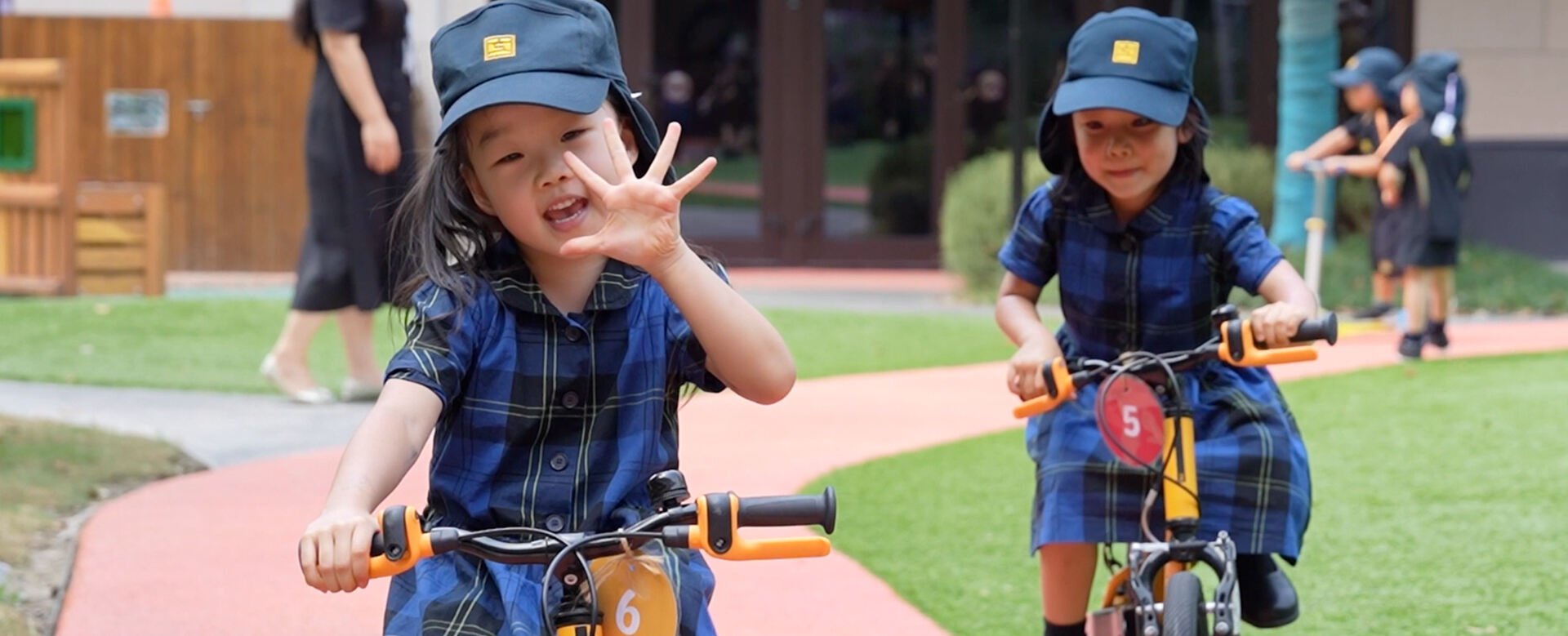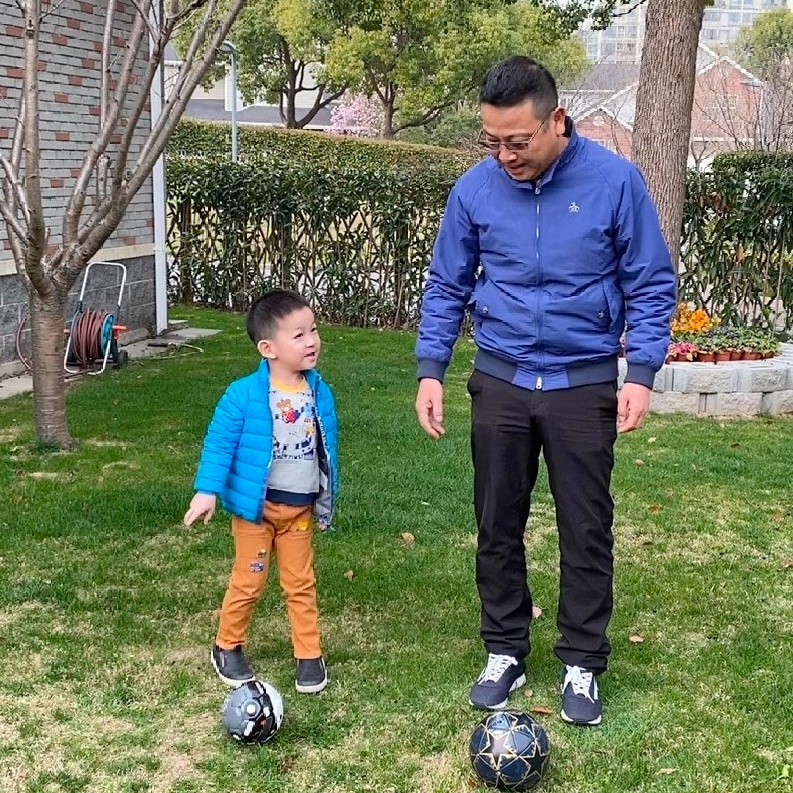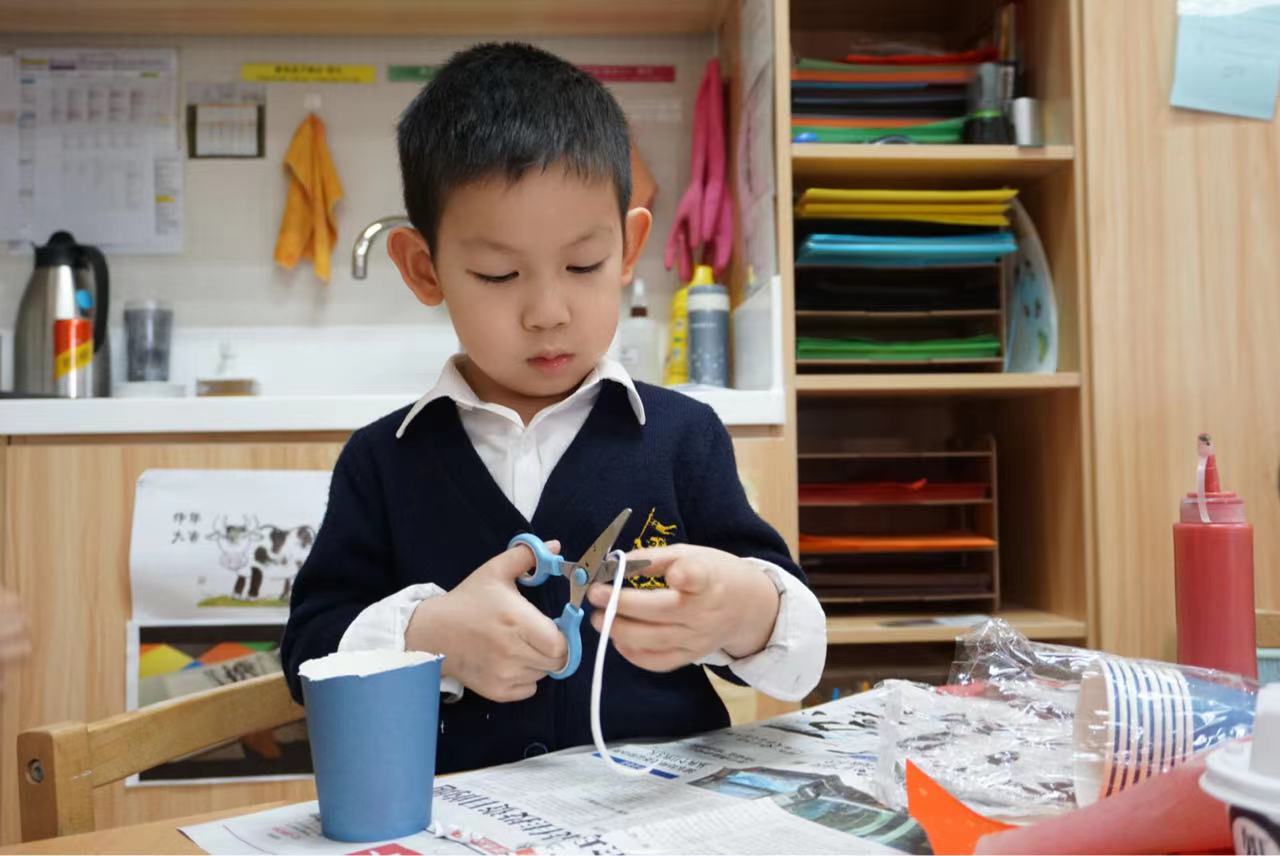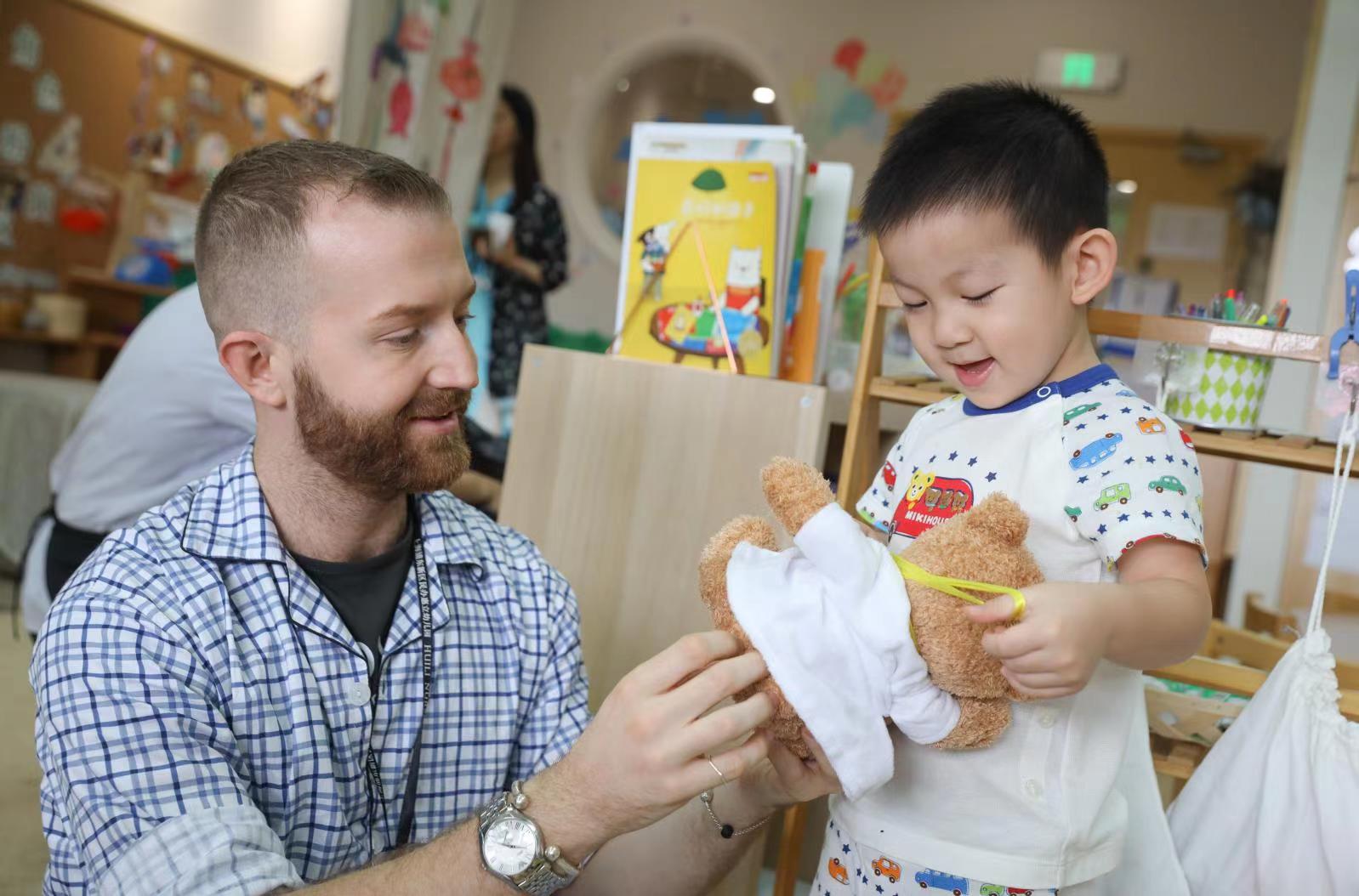
Choosing a suitable nursery for children is a common concern of all parents. It is like finding the proper soil for a seedling. Only when children are looked after by responsible and caring 'gardeners' can parents rest assured that these seedlings will grow to become strong, towering trees with strong roots.
This was Mr Hu Jun's thinking when he chose Hiba Academy Shanghai for his son Ian. Now an early years 4 pupil, Ian will soon leave Hiba Nursery and enter primary school. Looking back on the past three years, Mr Hu believes that he made the right choice for his child.

Learning through fun
Mr Hu believes children should grow up in a happy and fun environment. This does not mean indulging your child's every whim. On the contrary, it means letting them learn through fun activities and be inspired by things that naturally interest them.
Taking part in a coffee morning, he came to realise that Hiba Nursery shares this belief. The head of the nursery explained to all in attendance that they instil in children the basic values that a person should have — such as being responsible, courageous and respectful.
Visiting the nursery, Mr Hu saw pupils learning in a free and safe environment. They were fully engaged in learning through play. This kind of learning is difficult to quantify, but it is nevertheless important.
He also noticed how teachers conducted their music, library and physical play classes. Whether in motion or sitting still, the children all seemed to be enjoying themselves. It seemed that Mr Hu had found the nourishing soil he was looking for.
Thinking and behaving independently
Ian has changed a lot since he started at Hiba Nursery. He can now explore new things and interrogate his surroundings on his own.
One day, Ian read an English book about how to paint with ice, and he wanted to try it out himself. He was unfamiliar with some of the words in the book so he asked his teachers to help him better understand what he was reading. Then, he wrote down every step in Chinese and created an ice painting based on his translated instructions. Ian encountered a problem and he figured out how to solve it. This is a skill that Mr Hu believes is important.

Many learning activities at the nursery focus on play. Recently, Ian has taken an interest in cooking, because he reads the nursery's many cookbooks and engages in a lot of role-play involving cooking and serving food. Under Mr Hu's close guidance, Ian even prepared a dish himself at home. This ability to develop clear thinking patterns and effectively manipulate objects continues to impress Mr Hu.
Inspiring early years education
Ian benefits greatly from Hiba Nursery's bilingual education. The English immersion environment has not only improved Ian's speaking skills, it has help to develop his cognition skills too.
Young learners initially go through an adaptive phase when faced with an English teacher and a bilingual learning environment. Hiba Nursery’s English teachers take a situation-based approach supported by facial expressions, language, gestures, tones and patterns to make children feel comfortable.
Mr Hu appreciates the very gentle approach that Hiba teachers take. They sit on the floor or kneel down to get on an equal footing with the children when they communicate with them. This is an effective way to minimise the discomfort that children may feel when faced with unfamiliar people and languages. The teachers offer constant encouragement, which builds the children's confidence. With this confidence, children gradually take more initiative in learning English.
Being an observant father
Mr Hu believes that character development at home is also crucial. As an educator, he was acutely aware of the strong command of numbers, geometry and maths Ian had by the time he was two or three years old.
Ian always showed particular interest in jigsaw puzzles and Lego, activities that involve combinations and variations of shapes and colours. Mr Hu also noticed that after gaining a basic understanding of numbers, Ian liked to play maths-related games, starting with simple one-digit addition and subtraction, and eventually advancing to two-digit operations.
One day, Ian asked his father, "Do you know what comes after one trillion, Daddy?" The question surprised and impressed him. Ian built on his basic knowledge to engage in wider enquiries. Mr Hu therefore continues to encourage Ian to pursue maths and further develop his skills. In fact, Ian has recently run out of whole numbers to compute. He has now advanced to working with negative integers and decimal points. Mr Hu remains optimistic that each subsequent discovery will take his son into deeper areas of mathematics.
Being a role model
Mr Hu believes he has a duty to set an example for Ian and recognises the importance of building character. He constantly reflects on how words and deeds may influence his son. He tries to motivate his son through encouragement rather than pressure. An educator himself, he is all too aware of the links between poor mental health and excessive parental pressure.
For example, Ian is learning how to play the piano. Mr Hu encourages him to cultivate his skill and appreciation of music through consistent practise. But he is quick to point out that encouragement does not mean coddling. Resilience is important, and that can only be learned through hard work and persistence. Sports are another way in which Mr Hu teaches his son resilience. Failure is part of any sport, and Mr Hu tells his son not to fear it. The key is to get back up and try again, not to give up in frustration.

Mr Hu also feels that just because a child is young, it does not mean that they are a less important member of the family. Their opinions are valid, and they should be heard. It can be hard enough to swallow one's pride and apologise to other adults, let alone a child. But apologising is important, especially to one's children. Moreover, by setting such an example, children will model this behaviour and eventually learn how to apologise to others as well.
Ultimately, being a role model as a father is hard work, but it is a labour of love that pays off in immense dividends — a child who grows up to be curious, kind and fully engaged in the world.
Article | Virginia